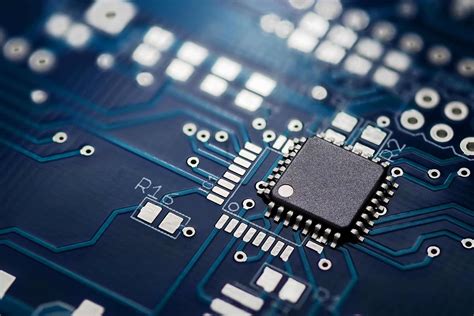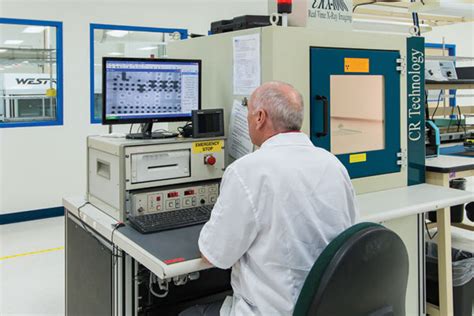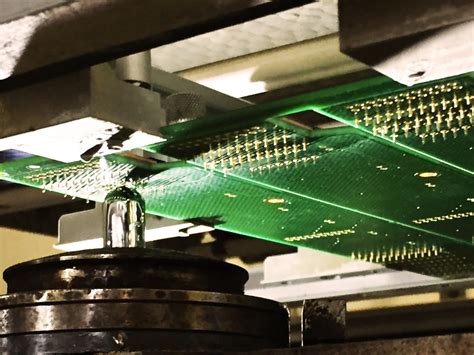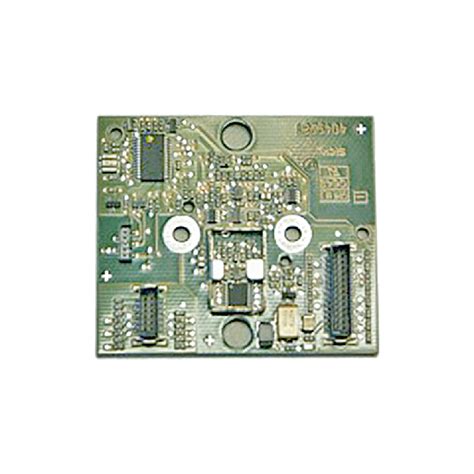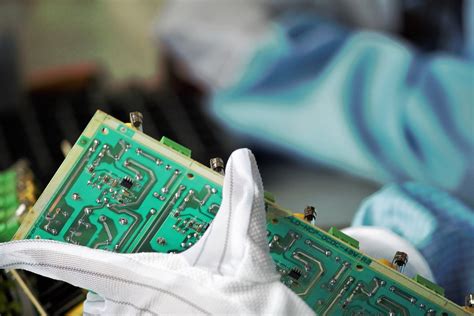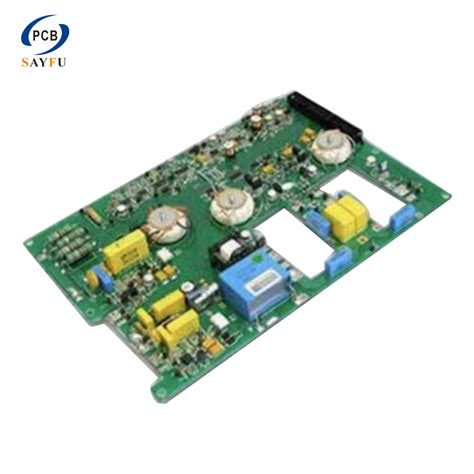Unlocking Efficiency: The Benefits of Turnkey PCB Assembly in Modern Electronics
Key Takeaways
Understanding turnkey PCB assembly is crucial for modern electronics manufacturers seeking efficiency and quality. This approach to PCBA integrates all stages of development—from design through to manufacturing and assembly—into a single cohesive service. By adopting a turnkey model, companies can significantly reduce lead times, as the entire process is streamlined. The role of advanced technology in pcb assembly cannot be understated, as it not only accelerates production but also minimizes the risk of errors often associated with multiple vendors handling different stages of production. As businesses turn to this method, they unlock substantial cost savings and efficiency gains, ultimately enhancing their market competitiveness.
Moreover, turnkey assembly provides opportunities for improved product quality through the expertise of specialized craftsmen dedicated to every aspect of the manufacturing process. Effective supply chain management becomes achievable when all components are managed within a single framework, reducing complexity and enhancing responsiveness to market changes. Flexibility is another key advantage; companies can adjust production scales or specifications swiftly to accommodate fluctuating customer demands without undue strain on resources. As innovations continue to evolve within this field, the forward-looking trends in turnkey PCB assembly promise to redefine what’s possible in electronics manufacturing—paving the way for a more streamlined future where efficiency and quality go hand-in-hand.
Understanding Turnkey PCB Assembly: An Overview
Turnkey PCB assembly, often referred to as PCBA, represents a pivotal approach in the manufacturing of electronic devices. This method encompasses every aspect of printed circuit board production, from the initial design phase to the final assembly, effectively presenting a comprehensive solution for businesses in the electronics sector. By utilizing turnkey services, companies can engage with a single provider that manages various components of the production process. This integrated approach not only significantly reduces lead times but also minimizes potential errors that can occur when coordinating multiple vendors for different aspects of PCB assembly.
With enhanced efficiency at its core, turnkey PCBA becomes a critical ally in an environment where time-to-market can dictate a product’s success. As firms navigate the complexities of modern electronics production, this method allows for smoother transitions between stages and promotes better collaboration among stakeholders. Moreover, adapting to industry changes becomes more feasible when working with integrated solutions that are designed to evolve alongside the fast-paced nature of technology. Embracing this innovative technique allows organizations to streamline operations and deliver high-quality products while maintaining flexibility and responsiveness to fluctuating market demands.
Streamlining Production Processes with Turnkey Solutions
In the competitive landscape of modern electronics, businesses are increasingly turning to turnkey PCB assembly solutions to streamline their production processes. This approach consolidates various stages of manufacturing, making it possible to handle the entire journey from design to assembly with a single service provider. As a result, organizations can significantly reduce lead times and mitigate the risk of errors that often arise from managing multiple suppliers.
For instance, by adopting turnkey PCB assembly, companies can ensure that all components and assemblies are perfectly aligned from the outset, ultimately leading to fewer revisions and a more efficient workflow. The integration of advanced technology in PCBA practices allows for automation and precise control over the assembly process, which enhances accuracy and reduces production time.
Here is a summary of key advantages:
| Advantage | Description |
|---|---|
| Reduced Lead Times | Combining services reduces delays associated with multiple suppliers. |
| Minimized Errors | Streamlined processes decrease opportunities for mistakes during design and assembly phases. |
| Enhanced Quality Control | Consistent oversight throughout production leads to higher quality products with fewer defects. |
| Cost Efficiency | Integrating processes reduces overhead costs linked to supplier management and logistics issues. |
By selecting a turnkey approach, manufacturers not only optimize their pcb assembly process but also position themselves favorably in an ever-evolving market landscape that demands speed and precision. This shift toward integrated solutions leads to better resource allocation, enabling businesses to focus on innovation while ensuring that operational efficiency is maintained at its peak. Thus, embracing turnkey solutions is becoming an essential strategy for organizations aiming to thrive in today’s rapidly changing electronics industry.
The Role of Advanced Technology in PCB Assembly
In today’s rapidly evolving electronics sector, advanced technology plays a pivotal role in the efficiency and accuracy of PCB assembly processes. The integration of sophisticated software and automation tools has revolutionized the way PCBA is executed, allowing for greater precision in both the design and manufacturing phases. For instance, the adoption of 3D printing technology enables rapid prototyping, which significantly cuts down on development time by allowing designers to test their concepts quickly. Moreover, modern automated assembly lines equipped with high-resolution cameras and AI-driven systems ensure that components are placed correctly on the circuit boards, greatly reducing the likelihood of human error.
“Embracing technology in PCB assembly not only enhances productivity but also propels innovation within electrical design,” says industry expert Jane Doe.
Furthermore, seamless communication between design software and manufacturing equipment facilitates real-time modifications to production processes. This capability allows businesses to respond swiftly to any changes in market demand or project specifications, ultimately leading to a shorter time-to-market for electronic devices. The incorporation of IoT (Internet of Things) technology into manufacturing systems also provides companies with valuable data analytics that enhance performance monitoring and predictive maintenance.
The influence of advanced technology extends beyond just production efficiency; it also contributes significantly to sustainability efforts. By optimizing material usage and minimizing waste through more precise assembly techniques, companies can reduce their environmental footprint while maintaining high-quality standards. As electronic devices grow increasingly complex, leveraging these technological advancements will be essential for firms aiming to thrive in a competitive marketplace. Thus, businesses that prioritize innovation in their PCB assembly strategies will likely enjoy substantial advantages in quality and efficiency—making advanced technology not just an option but a necessity for success.
Cost Savings and Efficiency Gains from Turnkey Assembly
The adoption of turnkey PCB assembly has emerged as a game-changer for businesses striving to optimize their production processes. One of the primary advantages is the significant cost savings achieved through the consolidation of numerous production steps into a single service. By integrating design, manufacturing, and assembly functions, companies can reduce overhead costs associated with managing multiple suppliers and processes. This streamlined approach not only cuts costs but also enhances efficiency by minimizing lead times and potential errors that can arise from coordination issues between different providers. Furthermore, with a dedicated team handling the entire process, businesses benefit from improved communication, ensuring that any challenges are addressed promptly. As organizations increasingly rely on advanced manufacturing technologies, the focus on enhancing efficiency becomes paramount. This is where pcb assembly services that are designed to work seamlessly together play a crucial role in providing agility in production schedules and responsiveness to market demands. Ultimately, by leveraging turnkey solutions, manufacturers can experience considerable productivity boosts while maintaining tight control over costs, leading to better profit margins and competitive advantages in the ever-evolving electronics landscape.
Enhancing Product Quality through Expert Craftsmanship
In the realm of pcb assembly, the significance of expert craftsmanship cannot be overstated. With turnkey PCB assembly solutions, businesses can achieve higher levels of precision and quality in their devices. This approach integrates the entire production process, from initial design to final assembly, ensuring that every stage is handled by skilled professionals who understand the intricacies of pcba (printed circuit board assembly). As a result, potential issues are addressed early in the development cycle, reducing errors and defects that can compromise product integrity.
Furthermore, the expert craftsmanship applied in turnkey solutions often involves employing advanced techniques and technologies that elevate production standards. This guarantees that each component is meticulously designed and assembled to meet rigorous industry specifications. Companies that prioritize this level of quality not only benefit from enhanced product performance but also gain a competitive edge by establishing a reputation for reliability and excellence.
Moreover, with a streamlined approach to manufacturing and assembly, organizations are able to maintain consistency across their products. Every unit produced reflects the same high standards set forth by the team’s dedication to craftsmanship. Ultimately, this commitment to quality ensures that customers receive dependable electronic devices, fostering trust and loyalty in an increasingly competitive market. Through embracing expert craftsmanship in pcb assembly, businesses can truly unlock the full potential of their products while positioning themselves for long-term success.
Supply Chain Management: Optimizing with Turnkey PCB Solutions
In today’s rapidly evolving electronics industry, effective supply chain management is more crucial than ever, particularly when it comes to pcb assembly processes. By adopting turnkey PCB assembly solutions, businesses can streamline their supply chains and significantly reduce complexity. This integrated approach allows companies to manage every stage of the pcba lifecycle—from design and manufacturing to assembly—under one roof, thereby enhancing communication and collaboration among different stakeholders. As a result, organizations can eliminate redundancies, minimize the risk of errors, and improve overall production efficiency. Moreover, with advanced technology in play, such as automated processes and real-time tracking systems, businesses can enjoy better visibility into their supply chains. This transparency enables swift decision-making and proactive adjustments to meet fluctuating market demands. Ultimately, leveraging turnkey PCB solutions not only optimizes the logistics involved in pcb assembly, but also empowers companies to respond effectively to customer needs while maintaining high-quality standards throughout the production cycle.
Flexibility and Adaptability in the Electronics Industry
In today’s rapidly evolving electronics sector, the ability to adapt to changing market demands is paramount. Turnkey PCB assembly solutions provide manufacturers with the necessary agility to respond swiftly to consumer preferences and technological advancements. By integrating design, production, and assembly into a single streamlined process, companies can quickly modify PCB assembly specifications without facing significant delays. This flexibility is a game-changer; it allows businesses to cycle through innovative designs and capitalize on emerging trends more efficiently than traditional methods permit. Moreover, the adaptability of pcb assembly services supports lower volume production runs, enabling firms to test new ideas and adjust based on immediate feedback. This not only fosters creativity but also promotes a more responsive supply chain that can meet fluctuating demand patterns without compromising on quality or increasing costs. As a result, companies that utilize turnkey solutions are better positioned to thrive in an industry characterized by rapid technological change and competition.
Future Trends in Turnkey PCB Assembly and Their Impact on Innovation
As industries continue to evolve, turnkey PCB assembly is poised to undergo significant transformations that will influence innovation across the electronics landscape. With the increasing demand for more complex devices, pcba technology is adapting to meet new specifications and standards. One of the notable trends is the integration of smart manufacturing techniques. By leveraging the Internet of Things (IoT) and AI-driven analytics, companies can optimize their pcb assembly processes in real-time, improving both quality and efficiency. Additionally, as sustainability becomes a focal point for manufacturers, future turnkey solutions are likely to emphasize eco-friendly materials and practices, ultimately contributing to a reduced environmental footprint.
Moreover, as consumer preferences shift towards customization, turnkey PCB assembly services are expected to provide enhanced flexibility. This means businesses can more readily adapt their production lines to accommodate short runs or unique specifications without sacrificing efficiency. The synergy of automation and skilled craftsmanship will also play a crucial role in this evolution, ensuring that each phase of pcba is executed with precision.
Overall, these trends signify a pivotal moment for turnkey solutions in electronics manufacturing, where embracing innovation not only aids in maintaining competitiveness but also paves the way for cutting-edge enhancements that will define future products.
Conclusion
In the rapidly evolving electronics landscape, turnkey PCB assembly has emerged as a vital solution for businesses seeking to enhance their production efficacy. By combining various stages of the manufacturing process into a single, cohesive service, pcb assembly not only reduces lead times but also significantly minimizes the potential for errors that can arise from a fragmented approach. This integrated methodology allows for more streamlined operations and better communication among stakeholders involved in the project. Further, the application of advanced technology in pcba ensures that products are manufactured to stringent quality standards, thereby boosting overall product reliability and performance. Companies that embrace this innovative approach can achieve not only substantial cost savings but also improve their supply chain management, which is crucial in an industry characterized by rapid change and evolving consumer demands. Flexibility offered by turnkey solutions allows businesses to adapt swiftly, catering to shifting market requirements without compromising on quality. As we look towards the future, it’s clear that investment in turnkey PCB assembly techniques will be pivotal for companies aiming to stay competitive and drive success in their electronics projects.
FAQs
When exploring turnkey PCB assembly, many questions arise regarding its implementation and benefits. One common inquiry concerns the differences between traditional and turnkey solutions. Traditional PCB assembly often involves multiple vendors for design, manufacturing, and assembly, which can lead to longer lead times and increased risk of miscommunication. In contrast, turnkey PCB assembly integrates all these services under a single provider, ensuring a more cohesive process.
Another frequent question revolves around the cost-effectiveness of engaging in turnkey solutions. Many businesses find that while the upfront investment might seem higher, the long-term savings due to reduced lead times, fewer errors, and simplified logistics often justify the initial outlay. Furthermore, as companies leverage pcba services that utilize advanced technology and expert craftsmanship, they frequently realize enhanced product quality.
Customers also express curiosity about flexibility in project management when using turnkey PCB assembly. The adaptability of this approach allows businesses to swiftly respond to changing market demands without sacrificing quality or efficiency. As technology evolves and consumer preferences shift, employing a flexible solution can provide a significant competitive edge.
Overall, embracing turnkey PCB assembly can streamline production processes while offering significant cost savings and improved product outcomes. For those interested in learning more about enhancing their production capabilities through this innovative approach, we encourage you to explore additional resources.

